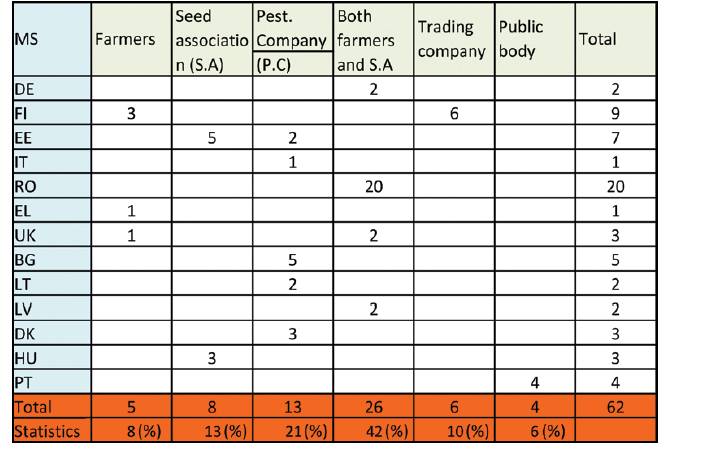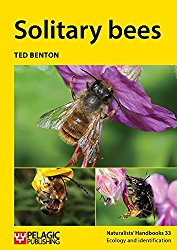Will The UK Have Weaker Pesticide Regulations Upon Leaving The EU?
The UK voted to leave the European Union in 2016, since when, there has been some speculation as to what will happen with regard to pesticide regulations – for example, the EU regulatory system approved neonicotinoids, but then restricted several of them, and we don’t wish to see such restrictions lifted.
This is obviously of concern for anyone who cares about bees and pollinators, and specifically protecting them from poisoning by pesticides.
I was interested to read an article in Horticulture Week – you can find it here:
http://www.hortweek.com/chance-less-restrictive-pesticide-regulations/fresh-produce/article/1430206
Not Much Chance Of Less Restrictive Pesticide Regulations
In particular, I’ll pull out the following points:
- Industry consultant, Dr Roma Gwynn states that ideas of a
more ‘liberal’ regulatory framework for the UK are “unfounded”, saying:
"Globally, registration data requirements are similar and no one ever changes standards downwards," and, "Society requires regulation to assess suppliers' claims…… As a grower, I would want products that are correctly regulated."
- Dr Wynn Grant of the University of Warwick, who has jointly
carried out a study on biopesticides and their regulation, suggests any
weakening would not only affect the exports of UK foods to the EU, but would
also be seized on by
"vigorous lobbyists who would be quick to raise public health concerns".
So, perhaps we can take from Dr Grant’s comment that farmers may be dissuaded from supporting any lobbying to liberalize pesticide regulations?
- Dr Grant adds that the UK PSD (Pesticide Safety Directorate –
now merged into the CRD) had previously taken
initiatives to get more bio-controls through (which I will expand on below),
but this went by the wayside somewhat, and he says the Government could revive
it.
He hints at the challenge of staff losses and shortage of resources.
- David Foster, general manager of bio-controls supplier
Koppert UK, also made the point that the Agrochemicals industry is a huge and
powerful lobby in comparison to the bio-controls lobby, saying:
"It is time to overturn the myth that pesticides are necessary to feed the world, and create a global process to transition toward safer and healthier food and agricultural production……..It's a myth that we can't grow the food that we need without chemical pesticides."
This may well suggest the tide is already turning in the UK - indeed, the fact that Bio-controls were already being studied and developed years ago may suggest there has long been interest to develop them.
Comment
I conducted a little research into the bio-controls issue raised by Dr Grant. I found a very interesting paper, and here it is:
https://www.ncbi.nlm.nih.gov/pmc/articles/PMC3130386/
from which I lift the following:
- The concern that “The injudicious use of broad-spectrum pesticides can damage human health and the environment” – is acknowledged within the paper.
- Biopesticides are defined “as a mass-produced agent manufactured from a
living micro-organism or a natural product and sold for the control of plant
pests”.
They include microbial biopesticides, biochemicals and semiochemicals. - Relatively few biopesticides are available to farmers. What really caught my eye, is one of the barriers to entry to the market for producers:
“Lack of profit from niche market products.
Many biopesticides have high levels of selectivity. For example, bioinsecticides based on baculoviruses, such as the CpGV…..typically are selective for just one or a few species of insect.
This is of great benefit in terms of not harming other natural enemies and wildlife, but it means that biopesticides are niche market products with low profit potential.
To quote Gelernter:
"The features that made most Biological
Control Products so attractive from the standpoint of environmental and human
safety also acted to limit the number of markets in which they were effective"
Well that’s disheartening and also intriguing!
The idea that there are possible products out there for farmers, which don’t kill a myriad other species as well as the intended “pest” - and yet the struggle for commercial viability deters such products from coming to market - is very disappointing indeed.
- The paper also points to
regulatory barriers, which are very costly and are devised primarily for
the traditional agrochemicals industry rather than the bio-controls.
- Yet, it seems that the UK did
indeed try to help this technology into the market! To quote again from the paper:
“Some regulatory authorities, the UK, for example, have acknowledged that basing the regulatory system for biopesticides on a chemical pesticides model has been a barrier to biopesticide commercialization”.
He states that the UK took a lead in the EU, by adapting for the biopesticides industry, reducing regulatory fees for producers of bio-controls, and up-skilling the regulatory department.
As a result,
more biopesticides were launched onto the market (and due to the mutual
recognition process – onto the EU market as well – thanks to the UK
action!).
So what happened?
Unfortunately, the Labour Government at the time cut the UK regulatory department resources, and the Pesticide Regulations Directorate was absorbed into the CRD at the Health and Safety Executive in 2008.
What next for bees and pesticide regulations?
We do not yet know how things will turn out for environmental regulation in the UK following Brexit.
Part of my campaigning has, for some years, been to push:
- for farmers to receive independent information on pesticide threats, and
- to forbid the use of pesticide in the absence of real “threat”, and;
- to prohibit
prophylactic use.
I believe these actions would immediately and substantially reduce the use of pesticides by farmers who in turn, would save a huge amount of money.
I will now add to this, that the UK has an opportunity to help the environment, wildlife, and farmers further, by championing Biopesticides once more.
I believe many farmers are open to support reduced chemical use – they want to reduce chemical use, and take better care of the soil.
I also support the
notion that it is a good idea to support farmers financially, who take genuine
steps to help the environment and wildlife whilst growing food – and move away
from an EU system, which enables Saudi Princes who breed race horses to collect money in the form of “EU grants” (which of
course, comes – via convoluted means, from the UK tax payers’ pocket).
To quote Prof Dave Goulson (as I have many times on this website!):
"Like Brexit or not, it provides a golden opportunity, freeing British farming from the Common Agricultural Policy, and making it possible to steer it away from industrial, chemical farming towards more sustainable methods.
If we do not, we will lose bees and much else of our wildlife for ever. " - Professor Dave Goulson, author of A Buzz In the Meadow and Bumblebee Behaviour and Ecology
His sentiments are echoed by Green politician and peer, Baroness Jenny Jones and I believe he is right, despite all the current uncertainty. We may miss opportunities by moaning and whining, rather than taking positive, lobbying action.
Anyway, my hope is that the UK will take positive measures soon –
because 3 next generation neonics have already been approved by the EU regulatory system.
Moreover,
I believe these 3 new toxins would escape any EU restriction or ban on neonicotinoids, quite simply because they have been categorized as “something
different” from neonics, although they work in a similar way to the restricted
poisons (they are systemic insecticides).
However, we do not yet know how things will work out!
Does the EU really stop farmers using neonicotinoids, and will the UK keep the ban on neonicotinoids?
From 2014 - 2015, the UK allowed 3 "emergency applications" of neonicotinoids for a 5% OSR area, but rejected applications for emergency use in 2016.
During the same time period, at least 62 emergency applications (that we know of) were granted for the use of neonicotinoids, across the EU, and the EU Commission has been criticised by Client Earth for doing nothing to stop abuse of the system.
 Countries granting emergency use of neonicotinoids - those reported Source: Client Earth
Countries granting emergency use of neonicotinoids - those reported Source: Client EarthBut........
Like so much that is happening right now, time will tell!
If you found this page helpful or interesting, I'd really be grateful if you would share it with others - if not this page, perhaps another, such as Gardening For Bees.
Thank you so much :) .



